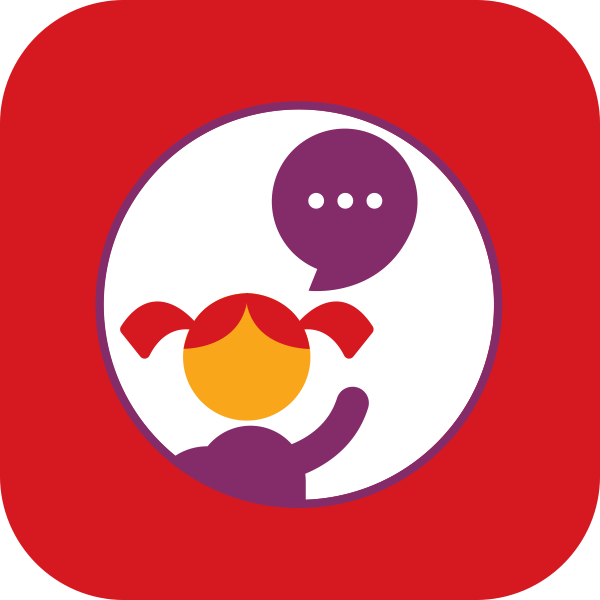“ ”
1. Screen every child
Speech and language delays are not always easy to spot. A child might chat happily with their friends and understand verbal or written instructions for daily routines. If you ask them to ‘put your yoghurt pot in the bin’ they know what to do, but they may still lack the critical speaking and listening skills which form the foundations for learning.
Routine screening of every child with WellComm helps early years settings to identify hidden issues, as Jacky Corner, High Level Teaching Assistant and Speech and Language Lead at Wigginton Primary School, explains.
“We screen all Reception children within a few weeks of joining in September, not just those we’re concerned about. This is important because young children often develop coping strategies that mask issues.
“Using WellComm, we have uncovered difficulties with speech and language, even when they’re not immediately obvious. This has helped us to prevent children from falling through the net.”
Training all staff to use the WellComm toolkit and the Big Book of Ideas gives settings greater flexibility in how screening and interventions are managed. “Children are comfortable being screened by someone they know. Having the whole team trained means we can screen over 40 children really quickly as it only takes about 15 minutes per child.”
Tricia Goodall, nursery manager at Dinky Groves Day Nursery, agrees. “The screener is so easy to use and we’re frequently surprised by the number of children who score lower than expected. It means we can start helping them straight away.”
2. Make interventions routine
Rising numbers of children have been starting nursery in York with speech and language needs since the pandemic. The WellComm Toolkit is helping them to catch-up.
Grouping children with similar difficulties together means support can be provided at scale. This could be a maths task to build the numerical vocabulary of children or a shared story about rainbows to build children’s knowledge and understanding of colours.
Settings that ensure interventions become part of the daily routine can see greater progress more quickly.
Wigginton Primary School had screened its early years cohort and identified a significant number of children who struggled to grasp positional words and phrases such as ‘on top of’, ‘underneath’ and ‘beside’. These are the basis for mathematics teaching. Using the Big Book of Ideas, staff put targeted activities in place each day which helped to fill the gaps.


3. Prioritise information sharing
All practitioners need to know the specific issues children are finding difficult so they can provide appropriate support or more targeted interventions.
Children who score Amber or Red after being assessed with the WellComm Toolkit can be supported straight away with suggested activities from the Big Book of Ideas.
At Wigginton Primary School, detailed notes are displayed for all early years staff in each of the activity areas to ensure every child gets the help they need.
“You can find a child’s name and instantly see what aspects of speech and language they struggle with alongside a fun activity to help them progress,” says Tricia from Dinky Groves.
“The Big Book of Ideas is the first place we go to find activities all the children can enjoy with additional suggestions to step the learning up or down. We’ve seen reluctant speakers grow in confidence and start chatting, simply from having a go at the next fun activity.”
4. Track progress
Regular screening is essential to track the impact of the interventions put in place to support individual children and groups.
Results can be shared with teachers too so that as children move up the next stage in their education, speech and language skills are continually reinforced, as Jacky explains.
“Knowing there were shortfalls in children’s positional language in the early years, our teachers could adjust classroom activities to address this when the children moved into Year 1. A lesson on treasure maps provided a great opportunity to re-teach phrases such as ‘behind’ and ‘in front of’, which really helped to embed the language.”
“ ”

5. Help parents engage
Providing parents with information on upcoming curriculum topics and the language being taught enables them to start using the relevant words and phrases in conversations at home.
Settings can share WellComm screening results and activities from the Big Book of Ideas with parents too. This makes it easier for them to know where the gaps are and how they can help their child progress. A memory game where a child adds items to an imaginary shopping list and calls them out as the list grows is a great way to build the literacy skills needed to recall a three, four or five word sentence.
“Parents don’t always have a complete understanding of what their child finds difficult or how they can support them from home, so offering some guidance is really helpful,” says Tricia from Dinky Groves.
Laying the foundations for the development of speech, language and communication skills in the early years is key to academic success and social development.
Click here to find how the WellComm Toolkit can help your local authority improve the identification and support of speech and language needs in the early years.

